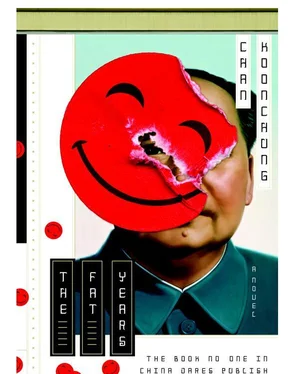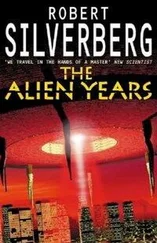Now I was at the Taiwanese United Daily. I collected the articles I’d already written and planned to publish a volume of interviews with famous mainland cultural figures. I thought at the time that it would be my greatest contribution to posterity. These venerable personages ranked as national treasures — and where they had already died and my interview represented their parting words, its worth would be beyond question. I probably worked too slowly, revising the book over and over, and so I missed my opportunity. When Endowment and Remembrance: In Search of One Hundred Forgotten Mainland Masters of Art and Literature was finally published, the atmosphere in Taiwan had changed. The book didn’t even make the Kingstone Bookstore’s bestseller list; it was featured in the weekly book-review section of the United Daily, but nobody discussed it again after that. Lee Teng-hui was the president of Taiwan and ethnic conflict was growing increasingly acrimonious. The people of Taiwan were concerned about the dangers of a cross-Strait war and not about mainland-Chinese culture.
After the publication of my book, everybody in the trade labeled me as a “China expert” or “an expert on mainland issues”—in other words, they were not interested in me.
So I decided to change my image. If I couldn’t write a literary masterpiece, I could at least write popular bestsellers. Books about war in the Taiwan Strait were big sellers at the time, so I read up on the nationalist and communist militaries to see what sort of angle I could take. I decided there were too many books following this trend and so I gave up, but I did learn something: if you want to ride a wave, you better get on early.
I wrote a detective novel called Thirteen Months, but it bombed.
People were becoming instantly famous by writing about their philosophy of life, so I wrote a book on life philosophies, but it bombed, too.
Management studies were all the rage, so I wrote several books on secret workplace-survival strategies, but they bombed, too.
My books on life philosophies and office management were really opportunistic works; they wouldn’t sell, and I had to admit it. But Thirteen Months should not have been confined so easily to oblivion. It was certainly an excellent piece of innovative Taiwanese detective fiction. Unfortunately, contemporary Taiwanese readers were used only to Japanese detective works or Agatha Christie whodunnits. They didn’t know how to appreciate the black humor and ironic worldly sophistication of American-style hard-boiled detective novels. Perhaps I wasn’t a first-rate writer, but I consoled myself with the self-mocking words of Somerset Maugham: among second-rate writers, I was definitely first-rate.
Finally, an opportunity came my way when some foreign author published a book on emotional IQ, or “EQ,” and it sold like hot cakes in Taiwan. I immediately pulled together all the information I’d amassed over the years about Chinese culture, from philosophies of life to business management, and quickly came out with a book entitled The Chinese EQ.
Just as I expected, The Chinese EQ was on the Kingstone bestseller list for six weeks in a row, peaking at number two. To see my work displayed in the place of honor every day in bookstores made me feel great.
By that time I was a celebrated journalist, a novelist, an expert on mainland China, and a self-improvement specialist. I was also a bestselling author, and this status gave real meaning to everything else I wrote. Most people had never read my books and had no idea what I’d written; they just knew that I was a bestselling author. In the 1990s Taiwanese society still had a certain amount of respect for bestselling authors.
My luck held. After the millennium year of 2000, my books were published on the mainland one after another.
Then in 2004, Chen Shuibian was reelected as president. I received a retirement package from the United Daily and moved to Beijing.
When I first arrived, I had a feeling of urgency and started to write very industriously. I wrote about Taiwan and Hong Kong culture for the mainland, and about Beijing and Shanghai for Taiwan and Hong Kong. The most important thing I did was to bring out my Comprehensive Cultural Guide to Beijing well before the Beijing Olympics. I was interviewed on a China Central TV books program, and thus you could say that I had received Chinese government approval.
At that point there was only one thing that I wanted to do, write my Ulysses or In Search of Lost Time— my literary masterpiece. In an age when there are no first-rate writers, I still wanted to prove that I was the best of all the second-rate writers. I refused all further requests to write journalism and started to concentrate solely on my novel.
Since then, I have not written a single word.
I have to confess that I don’t have to worry about meeting my living expenses. Western philosophers say that happiness consists in being moderately famous and moderately well-off, but not too famous and not too well-off. I don’t depend on royalties to get by; they don’t amount to much, anyway. The thing is, back in the early 1990s, when I was still working in Hong Kong and planning to get married, I bought a ninety-square-meter apartment on Hong Kong island, in Taikoo Shin. After my girlfriend went to Germany and married a German, I handed the apartment over to an estate agent to rent out for me and returned to Taiwan. Every year after that when we negotiated a new rental agreement, both the rent and the value of the property had soared. When I sold it just before Hong Kong’s 1997 retrocession to China, it was worth almost ten times what I had paid for it. In all my working life I could never have made enough money to buy such an apartment at a later date. When the Asian financial meltdown hit, the Taiwanese dollar depreciated, but fortunately all my money was safely in Hong Kong dollars with the HSBC. In 2004, when I moved to Beijing, I bought three apartments in Happiness Village Number Two, just ahead of the government prohibition on foreigners, including people from Taiwan and Hong Kong, purchasing more than one residence. I lived in one apartment and rented out the other two. I converted all my money to Chinese renminbi and it appreciated in value. As the world economy continued to be hit by wave after wave of crises, only China continued to flourish, and my small earnings were enough to live on quite well.
I’ve worked very hard on my writing, but I have lost all inspiration. It disappeared exactly two years ago, just as official Chinese discourse announced that the global economy had entered a period of crisis while China’s Golden Age of Ascendancy had begun. From that time on, I began to see that everyone in Beijing, and everywhere in China, was living well. I felt so spiritually and materially satisfied that I began to experience an overwhelming feeling of good fortune such as I never had before. An insomniac national leader
For more than a year, except for the New Year and other holidays, I’d been going to Jian Lin’s firm’s restaurant on the first Sunday of every month to have dinner, drink red wine, and watch old movies. Jian Lin is the owner of the Capital BOBO Properties Corporation. He is a member of the “old three classes”—the three secondary school classes of 1967, 1968, and 1969 that never graduated due to the Cultural Revolution. In 1978, when the college entrance examinations were reinstated, he went to university. He later became an official and often associated with artists and writers. Then he plunged into business in Hainan and somehow made it big in real estate, but he still has an air of culture about him and regards himself as “a scholar and a merchant.” He likes to discuss national affairs, and every year at Chinese New Year he writes a few traditional-style poems and sends them off to his friends and customers.
Читать дальше












